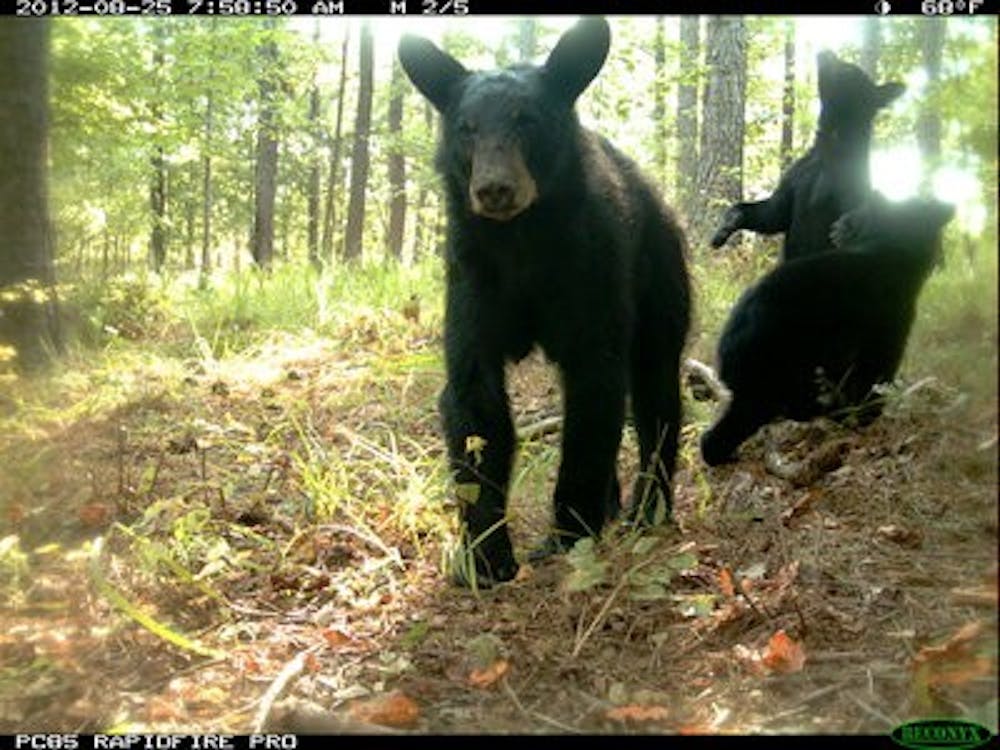Faculty members in the School of Forestry and Wildlife Sciences will begin placing GPS collars on black bears in the Little River Canyon National Reserve in north Alabama as part of their research on the population.
Associate professor in forestry and wildlife sciences Todd Steury said the purpose of putting GPS devices on the bears is to be able to study the bears further.
"The GPS is a part of a larger project," Steury said. "The goal is to try and understand about the black bears in Alabama."
Steury, along with Wayde Morse and Mark Smith, both associate professors in forestry and wildlife sciences, received a $529,000 grant from the Wildlife and Freshwater Fisheries Division of the Alabama Department of Conservation and Natural Resources in July for the project.
"We want to know how many black bears there are and how related they are," Steury said. "We also want to know what connectivity that they might have with other states."
The three faculty members will work with the Birmingham Zoo in their attempts to trap the bears and tag them with the devices.
According to a University press release, the project has three main components: to collect DNA and behavior information from as much of the Alabama bear populations as possible, to assess public perceptions about bears and bear management and to generate outreach materials to educate the public about living with bears.
"Getting to know the habitats they use is also a point of emphasis," Steury said. "We want to know how much time they spend near humans and using human habitats."
Steury also said the black bear was once common in Alabama, but now the population is down to two different areas--one in northern Alabama and another near Sarahland, just north of Mobile. The number of bears in northern Alabama is currently more than 26.
"There are other bears roaming the state and looking for mates," Steury said. "They are dangerous, but the risk of being injured is relatively small."
In an interview with AL.com, park ranger Larry Beane said stories of bears have been told for years.
The Little River Canyon National Preserve is located just outside of Fort Payne on top of Lookout Mountain.
The entire preserve takes up more than 13,000 acres.
The group finished a pilot project earlier this year, and because of the funding, they will be able to continue their studies.
"We have funding for four years," Steury said.
The GPS devices, which cost $2,500 each, will give the location of each bear tagged every 60 minutes and will be monitored through an online platform. The researchers will also be able to track the bears during the hibernation period as the devices have a VHS transmitter.
"We want to get as much information on the bears as we can," Steury said.
Do you like this story? The Plainsman doesn't accept money from tuition or student fees, and we don't charge a subscription fee. But you can donate to support The Plainsman.





